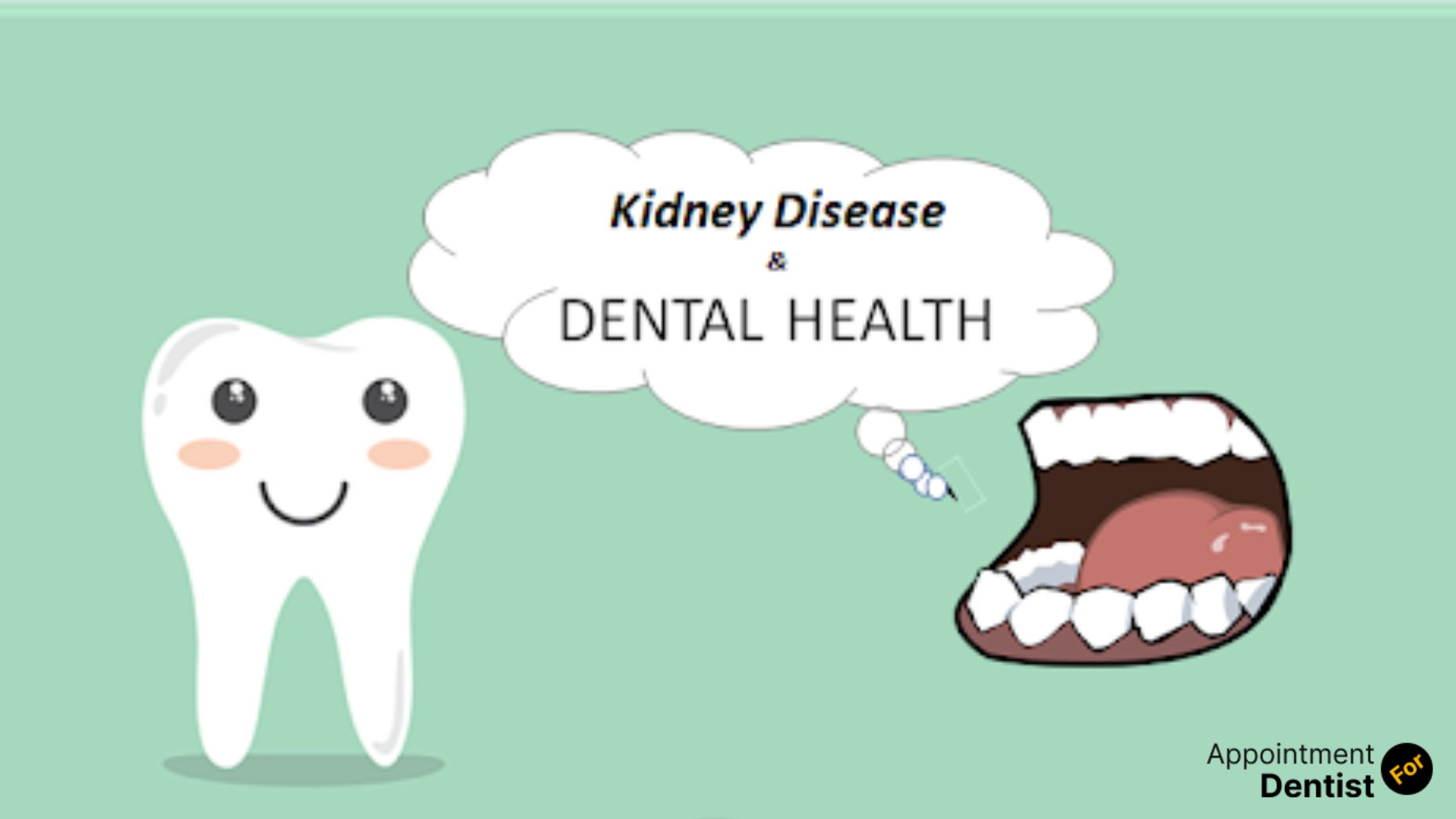Addressing Oral Health in Patients with Kidney Disease
Posted on August 10, 2024 by Admin

Addressing Oral Health in Patients with Kidney Disease
Kidney diseases are among the critical diseases that lead to other various complications. Systemic disorders, such as kidney disease, have been closely linked with oral health deterioration. It is usual for patients who have gone through chronic kidney disease to face a few challenges in observing good oral hygiene or averting dental complications.
Kidney disease–oral health connection: It will definitely affect oral health directly because kidney diseases are associated with xerostomia, tooth decay, gum disease, and delayed healing after dental procedures. On the other hand, poor oral health can also result in the advancement of kidney disease because harmful bacteria will spread to the blood circulation and initiate an inflammatory response, leading to infection.
It has been documented that, in comparison with healthy controls, patients with kidney disease have higher rates of decayed, missing, and filled teeth, and increased rates of periodontal disease and oral lesions. These can be worsened by a variety of factors, such as medications, dietary restrictions, and weakened immune systems.

Strategies for the Maintenance of Oral Health in Kidney Disease
In particular, patients with kidney disease should have good oral health. The following are some strategies that may help to address the oral health challenge:
- Regular dental checkups: Patients with kidney disease should attend regularly with their dentist for check-ups and cleanings, even if they have no obvious dental problems.
- Good oral hygiene: The patient should brush his teeth at least twice a day with a soft-bristle toothbrush and fluoride toothpaste. He should floss once a day to remove plaque and food particulate matter between the teeth.
- Dry mouth management: Patients should drink plenty of fluids, chew sugar-free gum or suck sugar-free hard candies to stimulate saliva flow, use saliva substitutes as needed, and inform their dentist about their medications and any changes in them as well as any upcoming major medical procedures.
- Dietary considerations: Avoidance of sweet and acidic food promoting caries; give importance to a balanced diet rich in calcium and phosphorus for the formation of good teeth and bones.
- Communication with health care providers: The patient has to mention the kidney disease, used medications and hospitalization or infection during the last months to the dentist. This will help the dentist in modifying the treatment accordingly and rendering proper care.
Conclusion
Oral health in patients with kidney diseases goes a long way in ensuring the general health and the quality of life. To this regard, patients with kidney disease are able to practise good oral health management by strictly adhering to the health provider's advice and good oral hygiene practices. This includes attending frequent dental checkups that will allow the minimization of oral health complications. Remember that a healthy mouth is instrumental in managing kidney disease and general well-being.
Faqs
-
1. How does kidney disease impact oral health?
Kidney disease may cause dry mouth, which puts one at risk of developing tooth decay and gum diseases and delayed healing after receipt of dental treatments.
-
2. Can poor oral health make kidney disease worse?
Yes. Poor oral health may promote entry of harmful bacteria into blood circulation and cause inflammation and infection, thus contributing to worsening of kidney disease.
-
3. What should be the frequency of visiting a dentist for patients with kidney disease?
In that case, kidney disease patients should visit a dentist every six months for checkups and cleaning.
-
4. What are the common oral manifestations of kidney disease?
Hindered oral manifestations include dry mouth, increased risk for tooth decay and gum diseases, and oral lesions.
-
5. How can patients with kidney disease maintain good oral hygiene?
They should brush their teeth twice a day using a soft-bristled toothbrush and fluoride toothpaste, floss once a day, and use saliva substitutes where necessary to cope with dry mouth.
Recent Post
- The Importance of Oral Health Education for Children
- How to Choose the Right Orthodontic Treatment for Adults
- The Link Between Oral Health and Stroke Risk
- How to Address and Prevent Gum Recession
- Innovations in Dental Anesthesia: Pain-Free Procedures
- The Role of Saliva in Oral Health: Functions and Disorders
- Exploring Holistic Dentistry: What You Need to Know
- How Oral Health Affects Your Immune System
- The Benefits of Using Dental Probiotics
- Oral Health and Pregnancy: Myths and Facts